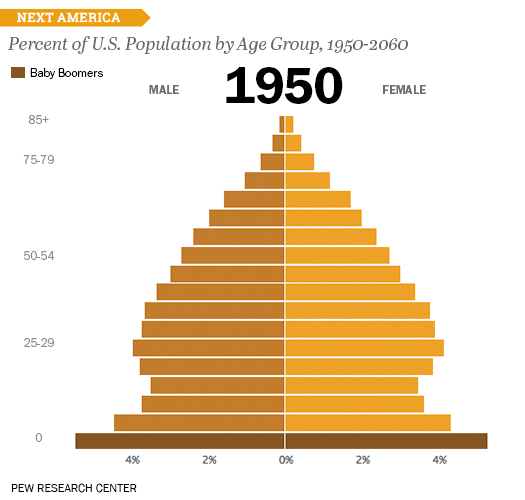Jacob Morgan's Blog, page 31
July 14, 2014
Which Companies Dominate the “Internet of Things?”
The internet of things is still a very big area of discussion and exploration. The folks over at Appinions (an influencer marketing platform) put together an interesting list of companies that are having a huge impact on the internet of things industry. Based on their scoring system here is what they came up with.
The companies listed above cover pretty everything you can think of in the IOT space and offer products ranging from smart office equipment and wearable devices to smart home appliances and the ability to create smart automobiles. There’s also another area of the IOT which GE coined as “the industrial internet,” that is connectivity for machinery, manufacturing, robots, and the like. Those leading companies can be seen below:
The most interesting thing however is what people are discussing when they are mentioned the internet of things. Appinions put together a nifty little tag cloud for that as well. It should come as no surprise that words like privacy, data security, and big data, are among the most common themes.
I still believe that most people in the world have no idea what the internet of things is or what all of this connectivity means to them professionally or personally. I tried to explore this in an article I wrote for Forbes called “A Simple Explanation Of The Internet Of Things.” Appinions correctly identified that this is still a very volatile market (as is the wearable space) which is still going to see plenty of newcomers, acquisitions, and companies going bust.
You can see their full report here.
 Send to Kindle
Send to KindleThe post Which Companies Dominate the “Internet of Things?” appeared first on The Future Workplace.


 [image error]
[image error]
[image error]
July 7, 2014
America’s Changing Population
Recently the folks over at Pew Research released a very interesting report on The New America which explores how the American population is changing and what it might look like through 2060. According to Pew there are two big shifts we are seeing. “Our population is becoming majority non-white at the same time a record share is going gray.” Take a look at the animation below to see how our population is shifting from a pyramid to a rectangle.
The fact that our population is going to eventually become older and more diverse is a pretty significant trend that organizations need to be paying attention to. Today many people are retiring at a later age and in fact many are not even retiring in the traditional sense, instead they are becoming freelancers after their employee tenure is complete. Obviously it’s a bit tough to predict what the world is going to look like by 2060 (let alone what it will look like in the next 5 years), but I believe that we will see an ever growing reliance on the freelancer economy as a result of this (and other factors). Organizations will create their own internal freelancer environments focused on tasks and projects instead of long-term careers and people will have the ability to work for multiple companies at the same time or be a part of multiple tasks/projects within a single company.
 Send to Kindle
Send to KindleThe post America’s Changing Population appeared first on The Future Workplace.





July 2, 2014
A Valuable Lesson That Companies Can Learn From the USA vs Belgium World Cup Game
Overall the United States Soccer Team did pretty well in the World Cup surviving the group of death (which many thought we wouldn’t) and making it into the round of 16 where we lost to Belgium in what I would call a disappointing game. Time Howard did all he could saving shot after shot that Belgium took on goal. The U.S. team botched passes, had very little rhythm, botched a wide open shot on goal, and barely made use of any of their offensive players despite having a greater overall possession percentage than their opponents. It was only in the 30 minutes of overtime where the U.S. played like a true world cup team coming up with some amazing opportunities. But why did they wait until overtime to start playing? If they would have played with the same intensity and creativity during regulation time then they could have very well advanced to the quarter finals.
I see a lot of similarity with between how the U.S. team played and how many companies approach their future. It’s only when tragedy strikes and when disaster is immanent that action is taken. Sometimes this approach works but oftentimes it does not. The moral of the story is don’t wait until it’s too late before you take action. There are only so many shots on goal (i.e challenges and obstacles) that a team or a company can take before it becomes a losing battle. Better to play your best right from the start, for companies around the world today this means taking action now.
 Send to Kindle
Send to KindleThe post A Valuable Lesson That Companies Can Learn From the USA vs Belgium World Cup Game appeared first on The Future Workplace.





June 26, 2014
Should Facebook Get Into the Employee Collaboration Space?
An article in Techcrunch yesterday says that Facebook may be working on using their platform for internal collaboration. The article isn’t conclusive in any way and doesn’t speculate as to whether any type of new product is being worked on or if the chatter is about simply using Facebook for collaboration purposes. I remember hearing something about Linkedin getting involved in the collaboration space as well, but that’s another topic. So does it make sense for Facebook to get involved in the enterprise collaboration space? I think an argument can be made for either side.
Why yes
From a simple profitability standpoint Facebook gets to double-dip into it’s user-base which is now well over 1 billion people, a significant portion of the world’s population. Today’s Facebook user includes everyone from the teenager to the company executive and the revenue is mainly generated from ads (around $2.4 billion annually from ads and $240 million annually games and apps) . By getting into the collaboration space Facebook can now generate revenue from these same people in more than one way. The young professional who plays Facebook games or downloads apps then goes to work where his/her company has thousands of annual seats for the business version of Facebook.
The features and functionality of Facebook are also quite robust, heck their graph search is probably better than what most enterprises use for their own internal search today. It’s not hard to see how a few minor tweaks to the UI or a few business-specific features can make Facebook into a formidable player in the collaboration space, after-all, many collaboration vendors today modeled their UI and functionality after Facebook to begin with. Their user list can easily rival any type of active directory within most companies around the world today. Their API and development tools can also make it extremely easy for any company to deploy all sorts of customization to their own deployments. I’m sure they also have an extremely powerful set of analytics tools and a content recommendation engine that can make collaboration much more easy, efficient, and likely to happen within organizations.
Let’s also not forget that Facebook has the resources (money and people), partnerships, existing clients, brand name, and relationships needed to make a serious dent in the collaboration space. If you ask the average person if they know who Jive, Yammer, or Chatter are, you will most likely get a “no.” You’d be hard pressed to find someone that hasn’t heard of Facebook. The collaboration space is also very ripe for a new disruptive player to come in especially since innovation appears to have tapered off (for now) and has instead been replaced by aggressive sales and marketing.
Why no
Who in their right might would want to ever have their personal Facebook account associated in any way shape or form with their business profile? The personal information just BEGS for some kind of security or privacy issue to come knock Facebook in the teeth. It would be a bit tricky to have these two exist in complete isolation with no overlap. Facebook’s brand is also all about personal communication and interaction so it really has no credibility or association in the collaboration space. If anything, Linkedin has much more of a shot at succeeding in this type of a place since most people already associate it as being the business network, but it’s not worth the risk for Facebook. Instead they should just focus on their core strengths of dominating the world one new user at a time.
Although Facebook does have a great set of tools and existing features it’s still miles away from what an enterprise would need it terms of true collaborative capabilities (not to mention security). Sure you can have groups, status updates, chats, and those types of things. But what about project or task management, sharing and editing files, integration with business tools, and gamification?
Facebook is also quite late to the party with many established vendors in the space such as IBM, Microsoft, Yammer, Jive, Chatter, and several others. These companies are already working with many of the largest and most forward thinking companies. They already spent money on the technologies, have lots of data uploaded, and their employees are used to it; there’s no way they would all of a sudden make the switch (unless Facebook for business was free?). Let’s also be honest, Facebook doesn’t have the greatest reputation when it comes to privacy so trust would be a huge issue here as well.
Conclusion
Obviously only Facebook knows what it plans to do but as I mentioned above I can certainly see a case for either approach here. In fact when looking at the features, functionality, and UI, Facebook is truly not that far off from what can be a great collaboration platform but there are just as many risks/cons as there are benefits/pros. At this point everything is just speculation but it’s interesting to at least think of what the possibilities are. In fact I’m sure much more can be written about the “yes” and “no” side for Facebook getting into (or not) the collaboration space. If they do make a move though I suspect it won’t be that long before they do. There are still plenty of companies in the world today who are looking to make investments around connecting their people and information or those who have already made the investments that are not quite satisfied with their deployments.
What do you think? Does Facebook have a play here and if so would you or your company use Facebook for business? What did I miss?
 Send to Kindle
Send to KindleThe post Should Facebook Get Into the Employee Collaboration Space? appeared first on The Future Workplace.





June 19, 2014
What Does the Future of Work Look Like?
A few weeks ago I flew to NYC to film a video on the future of work with the folks over at Success Factors. The video was recently debuted at SAP’s Sapphire conference in Orlando. It explores a lot of the themes and ideas that I care about such as employee engagement, workplace flexibility, the internet of things, and the importance of shifting from focusing on profits to prosperity. It was actually quite a production with full film crew, actors, and lot of cool editing and special effects. It was a very fun project and I was quite happy with the final video, check it out and let me know what you think. It does a great job of helping paint a picture of the future of work.
 Send to Kindle
Send to KindleThe post What Does the Future of Work Look Like? appeared first on The Future Workplace.





June 17, 2014
The FOW Community is Now Live!

I’m very excited to announce that today we officially launched the FOW Community. If you recall, the FOW Community is a completely custom invite only membership community that we (Chess Media Group) created in order to allow companies from around the world to connect with each other around themes and topics related to the future of work and collaboration. Members will also be able to access resources such as case studies and whitepapers. Connie and I will also be active participants in the community where we will share advice and provide help where we can.
I introduced the community here around a month ago (read this if you are just hearing about it) and since then we have been finalizing a few bugs, speaking with some potential members, and basically getting our “house in order.” The website which used to be a landing page is now a fully interactive site along with a collaboration quotient test, a maturity model, and a few other things. Visitors can also take a sneak peek at some of the content within the community itself. Of course, if you decide to join you will have to request an invitation.
We are very excited to launch something that we have been planning for over the past two years and actually developing for the past 14+ months. The FOW Community is going to be completely shaped by members including the actual features of the community itself (since we built it we can change it based on member feedback) as well as the type of content that is created. We are very excited to learn and grow along with the members and feel that we have created something truly unique and absolutely beautiful! Nothing like the FOW Community exists anywhere else (that I am aware of at least). This marks a starting point in a large idea and vision that we are moving towards around the future of work and collaboration. More ideas on where we are taking this and what our plans are will be revealed in due time!
For now take a look at the FOW Community, even if you don’t end up joining you will still find plenty of useful and valuable content there that you can access and play around with.
So for now, welcome!
 Send to Kindle
Send to KindleThe post The FOW Community is Now Live! appeared first on The Future Workplace.





June 5, 2014
The Future of Work and Millennials from SAP’s SAPPHIRE Conference (Video)
This past week I was in Orlando, Florida for SAP’s annual SAPPHIRE conference where I keynoted a session on the future of work and participated in a few panel discussions and videos. I will share all of those here in due time but for now I wanted to share a short 2 minute clip in which I share some personal information about me and how I ended up in this particular field. I also talk a bit about millennials and the changing dynamic we are seeing in the workplace today.
 Send to Kindle
Send to KindleThe post The Future of Work and Millennials from SAP’s SAPPHIRE Conference (Video) appeared first on The Future Workplace.





June 1, 2014
Heading to Orlando for SAP’s SAPPHIRE Conference
Tomorrow I’m heading off to Orlando for two nights where I will be speaking at Sapphire and where SAP will debuting a short 3 minute video we worked on together all around the future of work (I saw a sneak peak and it’s awesome!). I’ll be arriving Monday evening and departing Wednesday morning so it’s a pretty quick trip, however if you are in Orlando for the event let me know and perhaps we can at least say hello!
Here’s my speaking schedule:
10:30 am-11:15 am: Keynote on the future of work in the Forum Theater
12:30 pm – 1:30 pm: Analyst panel on the future of work in Multiplex- Room C
2:30 pm – 2:50 pm : Moderating a panel on millennials in the workplace the Forum Theater
Aside from these speaking spots I’ll be participating in a radio show, short video interview, and a few other events. If you get a chance to attend any of the sessions that I’m taking part of then we can always chat for a few minutes afterwards as well. I’m very excited to be speaking and attending and I hope to meet a lot of new people! The big theme I’m going to be exploring in all of my sessions is “challenging convention,” I’m sure this will lead to some interesting discussions and debates.
See you in Orlando!
 Send to Kindle
Send to KindleThe post Heading to Orlando for SAP’s SAPPHIRE Conference appeared first on The Future Workplace.





May 28, 2014
Driving Culture Change Ain’t So Easy!
Yesterday SAP invited me to join their radio program called “Game Changers” to talk about transforming corporate culture within organizations. We talked about collaboration, millennials, the future of work, and a whole bunch of other things.
I joined Sarah Cooke, associate vice president from Great Place to Work and Deb Stambaugh, the senior director of talent marketing from SAP. We had an hour long chat about culture and the future of work and it’s one of the more up-beat and fun radio appearances I’ve done. Here’s the show description:
“The buzz: Culture. How do you start your business day? Peter Drucker says, “Culture eats strategy for breakfast.” Increasingly, companies today see workplace culture as fundamental to success. But if your organization’s culture is not serving your business goals, changing it and getting your employees to embrace the change can be a daunting uphill challenge. Would you like to know what works and doesn’t work for companies that have successfully climbed this steep slope? The experts speak. Jacob Morgan, Chess Media Group: “”Work as we know it is dead”. Sarah Cooke, Great Place to Work: “In most organizational change efforts, it is much easier to draw on the strengths of the culture than to overcome the constraints by changing the culture” (Prof. Edgar Schein, MIT Sloan School of Management). Deb Stambaugh, SAP: ““If you get the culture right, most of the other stuff will just take care of itself” (Tony Hsieh, CEO of Zappos). Join us for Driving Culture Change: Easier Said Than Done.”
If you have some time, take a listen, it’s a fun show!
 Send to Kindle
Send to KindleThe post Driving Culture Change Ain’t So Easy! appeared first on The Future Workplace.





May 23, 2014
Long Term Employment? You Must Be Joking!
 A few decades ago there was an implicit contract between employees and the organizations they worked for. As an employee, you would be loyal and committed to the organization you worked for – giving it your labor and your attention. In exchange that organization would take care of you for life. In fact, working at an organization for 20, 30, or over 40 years was really not that uncommon. Then, once you would leave that organization you would get a pension. Some of these long-term employees still exist but they are a rare dying breed on the verge or retirement (or have reached a point where they too now need to switch jobs). Contrast that with people like my 22 year brother who doesn’t even know what a pension is, and neither to most other people his age.
A few decades ago there was an implicit contract between employees and the organizations they worked for. As an employee, you would be loyal and committed to the organization you worked for – giving it your labor and your attention. In exchange that organization would take care of you for life. In fact, working at an organization for 20, 30, or over 40 years was really not that uncommon. Then, once you would leave that organization you would get a pension. Some of these long-term employees still exist but they are a rare dying breed on the verge or retirement (or have reached a point where they too now need to switch jobs). Contrast that with people like my 22 year brother who doesn’t even know what a pension is, and neither to most other people his age.
Long term or life-time employment as we know it today is completely, utterly, and unequivocally, 120% dead, and it ain’t coming back…ever.
The latest numbers from the bureau of labor statistics show that the average tenure was 4.6 years based on data released in January 2012. For workers over 65 the average tenure was 10.3 years and for workers between 25-34 the average tenure was 3.2 years. If you combine this data with the fact that large organizations are more rapidly getting replaced by other incumbents, then you have a bit of an “interesting” situation.
But why is this happening? There are a few reasons.
Globalization
Our access to opportunities is no longer limited to our physical location like it was decades ago. Today, you can be based in Beijing yet still have the opportunity to work for the hottest start-up in the Bay Area (which for many eventually means re-location). More opportunities and access to organizations all over the world means more choice, more freedom, and less commitment to one organization.
Big company doesn’t mean job security
I wrote about this a few weeks ago, but with the massive sweeping layoffs that many larger organizations go through, the incentive to work there shrinks dramatically. This means that the idea of seeing companies as “stepping stones” to better opportunities is pretty much the norm. The new workforce is growing up seeing these things happening first hand so they are very aware of this and preparing themselves accordingly.
Accelerating rate of change
Not only is the world of work changing but the rate at which it is changing is accelerating . This creates more market turbulence and instability. This heavily ties into the theme above about large organizations and job security. However, market turbulence affects all organizations and all industries. In more dynamic and turbulent conditions there is no such thing as long term stability. People get tossed around from place to place, companies go under, new companies emerge, and this cycle happens increasingly more often.
New loyalties
Instead of being loyal to a particular company, many are now loyal to specific people they work with . When these people leave they usually bring their “friends” with them.
Changing expectations
Today the levels of employee disengagement appear to be staggeringly high. This means that new employees start out working for an organization with a very positive outlook. However, once they start to feel like they are not appreciated, not enjoying their jobs, etc. They start to look elsewhere. Consider the many opportunities that are now present through crowd-funding sites like Indiegogo, disrupting businesses like Uber or Lyft, the ease of starting your own business, or even becoming a full-time freelancer on sites like oDesk or Elance. The mind-set of lifetime or long-term employment doesn’t even exist for many employees today. They simply expect to be at an organization for a few years and then move onto the next thing.
So, now that we know that long-term employment is dead, what should organizations be doing to adapt? This is a topic that I’m going to explore in my next post. In the meantime I’d love to hear your thoughts, experiences, and feedback around this. Are you noticing this trend at your organization and if so, what are you doing about it?
 Send to Kindle
Send to KindleThe post Long Term Employment? You Must Be Joking! appeared first on The Future Workplace.










